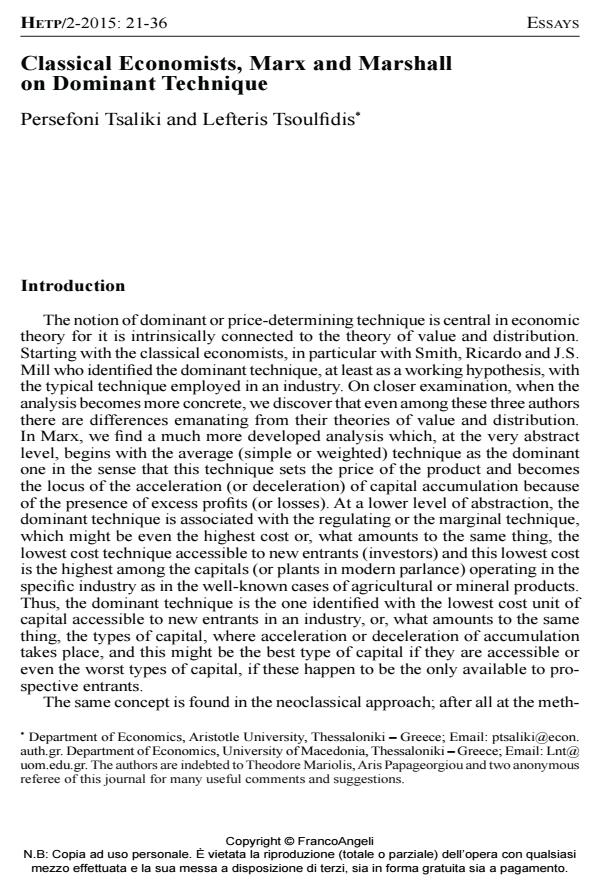Classical Economists, Marx and Marshall on Dominant Technique
Journal title HISTORY OF ECONOMIC THOUGHT AND POLICY
Author/s Persefoni Tsaliki, Lefteris Tsoulfidis
Publishing Year 2015 Issue 2015/2
Language Italian Pages 16 P. 21-36 File size 253 KB
DOI 10.3280/SPE2015-002002
DOI is like a bar code for intellectual property: to have more infomation
click here
Below, you can see the article first page
If you want to buy this article in PDF format, you can do it, following the instructions to buy download credits

FrancoAngeli is member of Publishers International Linking Association, Inc (PILA), a not-for-profit association which run the CrossRef service enabling links to and from online scholarly content.
The focal point of this paper is the notion of the dominant technique and its treatment in the theories of value and distribution. Our argument is that neither the average nor the minimum cost production are necessarily identified with the dominant technique in an industry. The dominant technique is in fact approximated with the types of capital, where expansion or contraction of accumulation actually takes place, and in this sense, the dominant is perceived as marginal technique used by firms entering (or leaving), and, therefore, expanding (or contracting) industry’s supply. Such a concept is absolutely consistent with the classical theory of value and is at odds with the neoclassical (not necessarily Marshall’s) theory despite of the adoption of marginal analysis.
Keywords: Dominant technique, market value, representative firm
Jel codes: B10, D40, O30
- Classical Political Economics and Modern Capitalism Lefteris Tsoulfidis, Persefoni Tsaliki, pp.285 (ISBN:978-3-030-17966-3)
- Dynamic linkages between real exchange rates and real unit labour costs: evidence from 18 economies Thanos Poulakis, Persefoni Tsaliki, in International Review of Applied Economics /2023 pp.607
DOI: 10.1080/02692171.2023.2240257 - Classical Political Economics and Modern Capitalism Lefteris Tsoulfidis, Persefoni Tsaliki, pp.197 (ISBN:978-3-030-17966-3)
Persefoni Tsaliki, Lefteris Tsoulfidis, Classical Economists, Marx and Marshall on Dominant Technique in "HISTORY OF ECONOMIC THOUGHT AND POLICY" 2/2015, pp 21-36, DOI: 10.3280/SPE2015-002002